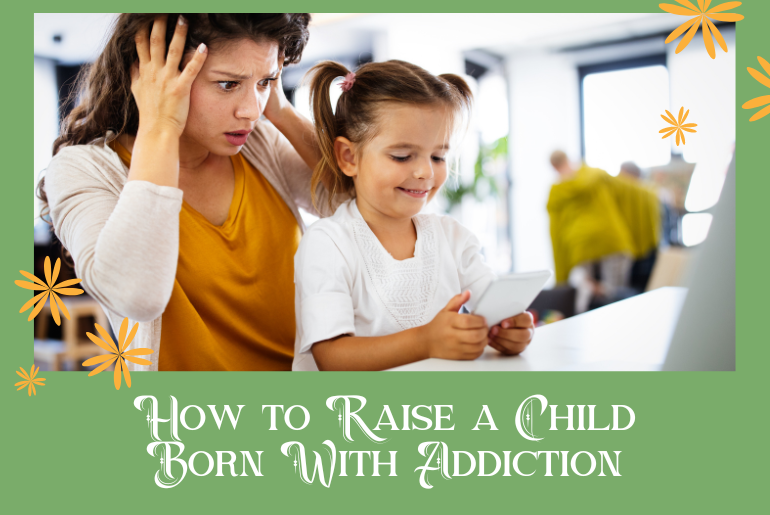We’ve all experienced those moments when our parents can seem surprisingly bitter or resentful, leaving us wondering, “Why are they so bitter?” I’m going to discuss some of the possible reasons behind their bitterness and discuss ways to create a more positive atmosphere at home.
One of the main reasons parents might become bitter is due to unresolved issues from their past, unmet expectations, or the stress of daily life. By understanding these root causes and employing empathy, effective communication, and offering support, we can help foster a more harmonious relationship with our parents and reduce bitterness in the household.
What Is Bitterness Between Parents and Children?
When I think about bitterness between parents and children, I am reminded of the emotional distance and resentment that can build up within a family dynamic. Bitterness, in this context, refers to a persistent negative emotion that arises from unresolved conflicts, disappointments, or perceived injustices. It can manifest itself in various ways, such as passive-aggressive behavior, constant criticism, or a general sense of discontentment.

For example, I remember a time when my friend’s mother would always compare her to her siblings, making her feel inadequate and resentful. This constant comparison led to a bitter relationship between them, with both parties harboring negative emotions toward each other.
In some cases, bitterness can be a result of unaddressed issues from the parents’ past that resurface and affect their relationship with their children. Parents may unknowingly project their unresolved emotions onto their kids, causing a rift in the relationship.
It’s essential to recognize that bitterness between parents and children doesn’t necessarily mean that there is no love or affection between them. However, these negative feelings can certainly impact the quality of the relationship and create a toxic environment if left unaddressed. Understanding the sources of bitterness can make us work toward resolving these issues and fostering a healthier, more positive connection between parents and children.
What Are the Causes of Bitterness Between Parents and Children?
There are various causes of bitterness between parents and children. Some of them include the following:

1. Poor Communication
Poor communication is often at the heart of bitterness between parents and children. When families fail to express their feelings, needs, and expectations openly, misunderstandings can arise and escalate into resentment. For instance, a parent may not effectively communicate their concerns or expectations, leaving the child feeling confused and criticized. Similarly, children might not feel comfortable sharing their feelings, leading to a buildup of negative emotions.
2. Unresolved Trauma and Pain
Parents sometimes carry unresolved trauma and pain from their past, which can lead to bitterness in their relationships with their children. This emotional baggage might stem from their own childhood experiences, past relationships, or career setbacks. When parents don’t address and heal from their past wounds, they can unintentionally project their pain onto their children, causing emotional strain and bitterness in the relationship or its future.
3. Guilt and Shame
Guilt and shame can also contribute to bitterness between parents and children. Parents may feel guilty about past mistakes or perceived failures in raising their children, while children might feel shame about not living up to their parent’s expectations. This negative cycle of guilt and shame can make it difficult for both parties to connect emotionally and maintain a healthy relationship.
4. Different Belief Systems
Differences in belief systems can create a significant source of tension and bitterness between parents and children. As children grow up, they develop their own values, beliefs, and priorities, which might not always align with their parents’ views. This divergence can lead to disagreements and conflict, ultimately resulting in bitterness if not managed effectively.
5. Lack of Support
A lack of support can also cause bitterness between parents and children. When children feel unsupported in their decisions or passions, they may harbor resentment toward their parents. Similarly, parents who feel unappreciated or undervalued by their children might experience bitterness. This lack of mutual support can result in emotional distance and strain within the family dynamic.
6. Stress and Life Challenges
Stress and life challenges can exacerbate bitterness between parents and children. As parents navigate financial pressures, work-related stress, or health issues, they might unintentionally take out their frustrations on their children. Similarly, children facing academic or social stressors may become more irritable and distant, leading to a breakdown in the parent-child relationship.
7. Personality Traits
Sometimes, bitterness can arise simply due to clashing personality traits. Parents and children might have different communication styles, emotional needs, or ways of coping with stress, leading to misunderstandings and resentment. Recognizing and accepting these differences is crucial in reducing bitterness and fostering a more harmonious relationship.
8. Addiction and Mental Health Issues
Addiction and mental health issues can significantly impact family dynamics and contribute to bitterness between parents and children. Parents struggling with addiction or mental health challenges might become emotionally unavailable or exhibit erratic behavior, creating a tense and unstable environment for their children. Likewise, children suffering from mental health issues may withdraw from their parents or act out in ways that strain the relationship.
9. Abusive Parents
In some cases, bitterness between parents and children can be a result of abusive behavior. Parents who are physically, emotionally, or verbally abusive create a toxic and harmful environment for their children. This abuse often leads to deep-seated resentment and bitterness that can last well into adulthood.
10. Lack of Closure
Finally, a lack of closure can contribute to bitterness between parents and children. Unresolved conflicts or unaddressed grievances can fester over time, resulting in a buildup of negative emotions. Seeking closure and resolution for past issues is essential in healing the relationship and moving forward in a more positive direction.
What Are the Effects of Bitterness Between Parents and Children?
Now that we have explored the causes of bitterness, let’s examine the effects this bitterness can have on both parents and children.

1. Frustration and Anger
One of the most apparent effects of bitterness between parents and children is the emergence of frustration and anger. As unresolved issues linger, both parties may become increasingly irritable and hostile, leading to arguments and conflicts within the family.
2. Lack of Closeness
Bitterness can create a significant emotional barrier between parents and children, resulting in a lack of closeness and connection. This emotional distance can make it difficult for both parties to rely on each other for support, advice, or companionship, ultimately weakening the parent-child bond.
3. Negative Emotions
The presence of bitterness can give rise to various negative emotions, such as sadness, disappointment, and resentment. These emotions can make it challenging for parents and children to enjoy each other’s company, creating an atmosphere of tension and unhappiness in the household.
4. Poor Communication
As bitterness grows, it can further exacerbate poor communication between parents and children. Both parties might become more defensive or guarded in their conversations, leading to misunderstandings and misinterpretations that reinforce the cycle of bitterness.
5. Low Self-Esteem
Children who experience bitterness in their relationships with their parents may develop low self-esteem. When parents are constantly critical, unsupportive, or emotionally distant, children can internalize these negative feelings and begin to believe that they are unworthy of love and acceptance. This low self-esteem can then impact their mental health and relationships outside the family.
6. Anxiety and Stress
Bitterness can generate anxiety and stress within the family environment. When parents and children are consistently in conflict or harboring negative emotions, it can create a sense of unease and tension, leading to heightened anxiety and stress levels for everyone involved.
7. Trauma and Abuse
In some cases, bitterness between parents and children can escalate to more severe issues like trauma and abuse. As emotions become increasingly intense and volatile, abusive patterns may emerge, causing lasting emotional and psychological harm to those involved.
8. Impaired Social Development
Children who experience bitterness in their relationships with their parents may struggle with social development. They might find it difficult to form healthy relationships with peers or authority figures, as they have not learned effective communication and emotional regulation skills within their family dynamic.
9. Poor Relationships
Bitterness between parents and children can have a lasting impact on future relationships. Children who grow up in a bitter environment may struggle to form healthy, trusting relationships with romantic partners, friends, or even their own children, as they carry the unresolved emotions from their past experiences.
10. Drug and Alcohol Abuse
Finally, bitterness within the family can sometimes lead to drug and alcohol abuse as a coping mechanism. Both parents and children might turn to substances as a way to escape their emotional pain, temporarily numbing the feelings of anger, resentment, and disappointment that stem from their unresolved issues. However, this self-destructive behavior can further exacerbate the problems and create additional challenges for the family.
How to Prevent and Stop Bitterness Between Parents and Children
Now that we have a better understanding of the causes and effects of bitterness, let’s explore some practical steps to prevent and stop bitterness between parents and children.

Step 1: Re-evaluate Your Parents’ Behavior Towards You
Start by reflecting on your parents’ behavior and considering any underlying issues or emotions that might be contributing to their bitterness. By gaining a deeper understanding of their actions and motivations, you can approach the situation with more empathy and insight.
Step 2: Get Comfortable with the Idea That They Are Angry at You
Accept that your parents might be feeling angry or resentful towards you, and understand that these emotions are a normal part of human relationships. Embrace the reality of their feelings without taking them personally, and use this acceptance as a foundation for addressing the bitterness.
Step 3: Face Up to Your Hidden Fears
Identify any hidden fears or insecurities that might be fueling the bitterness between you and your parents. Are you afraid of disappointing them or failing to meet their expectations? Confront these fears head-on and recognize that they may be causing unnecessary tension and conflict in your relationship.
Step 4: Relate to Them with New Strength
Approach your parents with newfound strength and resilience, striving to communicate openly and honestly about your feelings and experiences. By asserting yourself and setting healthy boundaries, you can create a more balanced and respectful dynamic between you and your parents.
Step 5: Take Responsibility for Your Feelings
Take responsibility for your own emotions and reactions in the parent-child relationship. Recognize that while you cannot control your parents’ actions or feelings, you can control your response to them. By managing your emotions and maintaining a calm, rational mindset, you can break the cycle of bitterness and foster a more positive and supportive relationship with your parents.
Step 6: Forgive When Feeling Bitter? Sure, but only at Your Own Pace
Forgiveness is a powerful tool for healing bitterness, but it’s essential to remember that it’s a personal journey that should be approached at your own pace. Don’t rush the process; take the time you need to process your emotions and work towards forgiveness on your terms.
Step 7: Focus on Positive Self-Talk
Practice positive self-talk to counteract the negative thoughts and emotions that can arise from bitterness. Remind yourself of your strengths, accomplishments, and the love and support you have in your life. Cultivating a more positive mindset can help dispel bitterness and foster a healthier relationship with your parents.
Step 8: Step into the Now to End Feeling Bitter
Focus on the present moment instead of dwelling on past conflicts or grievances. By grounding yourself in the present, you can let go of bitterness and work towards building a better future with your parents.
Step 9: Try a New Perspective
Sometimes, a change in perspective can make a significant difference in how you perceive and respond to bitterness. Try viewing the situation from your parent’s point of view, and consider how their experiences and emotions might be influencing their behavior. This new perspective can help foster empathy and understanding.
Step 10: Set Mini-Goals for Yourself Each Day
Set small, achievable goals for yourself each day that focus on improving your relationship with your parents. These goals might include engaging in positive communication, practicing patience and understanding, or setting aside time for bonding activities. By working towards these mini goals, you can gradually dismantle bitterness and nurture a more positive parent-child relationship.
FAQS
What are the main causes of bitterness in parents?
The main causes of bitterness in parents include poor communication, unresolved trauma and pain, guilt and shame, different belief systems, lack of support, stress and life challenges, personality traits, addiction and mental health issues, abusive behavior, and lack of closure.
How can I help my parents stop being so bitter?
To help your parents stop being bitter, try the following steps: re-evaluate their behavior, get comfortable with the idea that they are angry, face your hidden fears, relate to them with new strength, take responsibility for your feelings, forgive at your own pace, focus on positive self-talk, be present, try a new perspective, and set mini goals for yourself each day. Open communication, empathy, and understanding are crucial in addressing and resolving bitterness.
What are the long-term effects of bitterness on a parent-child relationship?
Long-term effects of bitterness on a parent-child relationship include frustration and anger, lack of closeness, negative emotions, poor communication, low self-esteem, anxiety and stress, trauma and abuse, impaired social development, poor relationships, and drug and alcohol abuse. These effects can impact the emotional and psychological well-being of both parents and children.
Are there any therapies or treatments that can help my parents cope with their bitterness?
Yes, there are various therapies and treatments that can help parents cope with bitterness. Professional counseling or therapy, such as individual or family therapy, can help address the underlying issues and emotions that contribute to bitterness. Cognitive-behavioral therapy (CBT) can be particularly helpful in changing negative thought patterns and behaviors. Additionally, support groups or workshops for parents can provide a safe space to share experiences, learn from others, and develop new strategies for managing bitterness.
What are the signs of unresolved trauma in parents?
Signs of unresolved trauma in parents can include emotional volatility, withdrawal, difficulty with trust and intimacy, overprotectiveness, a constant state of alertness or hypervigilance, flashbacks or intrusive thoughts, difficulty sleeping, irritability, substance abuse, and difficulty regulating emotions. Unresolved trauma can have a significant impact on a parent’s mental health and their relationship with their children.
Are there any warning signs that my parents may be suffering from a mental illness?
Warning signs that your parents may be suffering from a mental illness can include persistent sadness, irritability, withdrawal from social activities, changes in sleep or appetite, excessive anxiety or worry, feelings of hopelessness, difficulty concentrating, unexplained physical symptoms, substance abuse, and thoughts of self-harm or suicide. If you notice these signs, it’s essential to encourage your parents to seek professional help from a mental health professional.
How can I tell if my parents’ bitterness is related to a past trauma?
If your parents’ bitterness is related to past trauma, they may exhibit some of the following signs: emotional volatility, withdrawal, difficulty with trust and intimacy, overprotectiveness, a constant state of alertness or hypervigilance, flashbacks or intrusive thoughts, difficulty sleeping, and difficulty regulating emotions. Open communication and a willingness to listen can help you better understand if their bitterness is linked to past trauma.
What are the benefits of practicing compassion and forgiveness in dealing with a parent’s bitterness?
Practicing compassion and forgiveness when dealing with a parent’s bitterness can have several benefits. These practices can help you better understand your parent’s perspective and emotions, promoting empathy and connection. Compassion and forgiveness can also aid in reducing negative emotions, fostering a more positive mindset, and ultimately supporting a healthier and more harmonious parent-child relationship.
What are some practical strategies for managing my parents’ bitterness?
Some practical strategies for managing your parents’ bitterness include:
- Open and honest communication
- Setting healthy boundaries
- Focusing on positive self-talk and thoughts
- Practicing empathy and understanding
- Taking responsibility for your feelings and reactions
- Seeking professional help, such as therapy or counseling, if needed
How can I support my parents in overcoming their bitterness and finding happiness?
To support your parents in overcoming bitterness and finding happiness, consider the following:
- Encourage open and honest conversations about their feelings and experiences
- Offer a listening ear and provide empathy and understanding
- Suggest seeking professional help if necessary, such as therapy or counseling
- Encourage them to practice self-care and engage in activities that bring them joy
- Focus on creating positive experiences and memories together
- Help them identify and address the underlying causes of their bitterness
- Support their efforts to practice forgiveness and let go of past grievances
Bottom Line
Bitterness between parents and children can be a challenging and painful experience for both parties. By understanding the causes and effects of this bitterness, as well as implementing practical strategies such as open communication, empathy, forgiveness, and seeking professional help, it is possible to overcome these issues and foster a healthier, more harmonious relationship. Remember, it’s essential to approach this process with patience, understanding, and a willingness to work together to heal and grow. With time and effort, both parents and children can move past bitterness and create a more supportive and loving family environment.

Dedicated father, an accomplished psychologist, and an experienced educationist. With a passion for guiding parents on the rewarding journey of raising children, I am the perfect companion for all your parenting needs. My insightful and practical advice, coupled with my wealth of experience, makes me the go-to expert for all matters related to parenting. Follow this blog for a glimpse into the world of effective parenting and learn how to navigate the ups and downs of this beautiful journey with confidence and grace.




